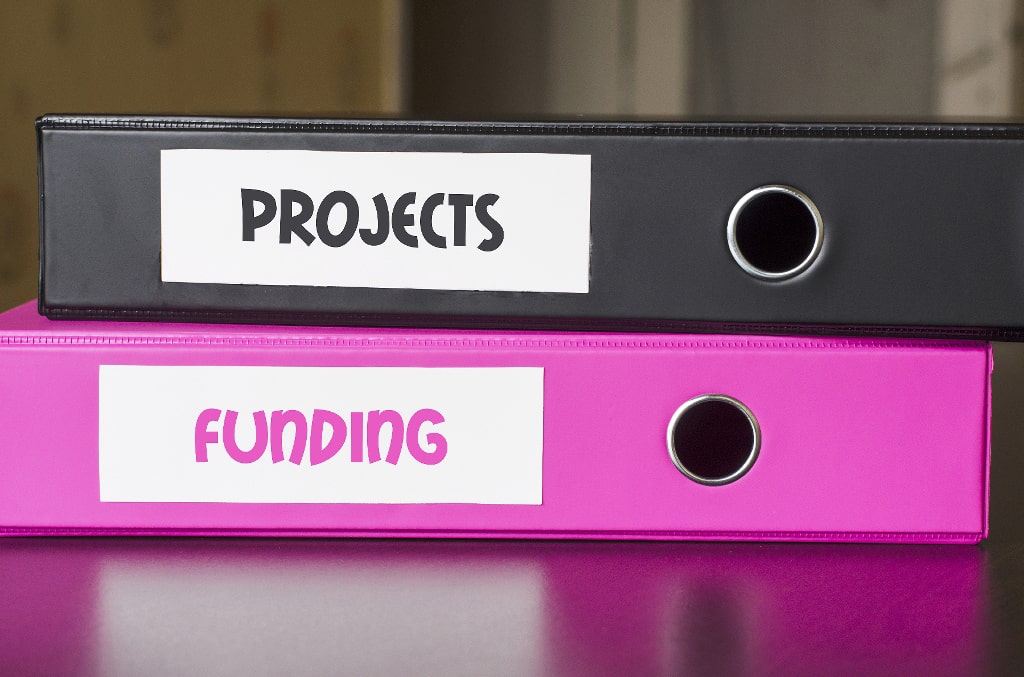Advertising in Your Cookbook Makes “Cents”!
If you are looking for a fail-safe way to take some – or all – of the financial risk out of your cookbook fundraiser, look to corporate sponsorships from your community. Some of our customers have told us they have a corporate sponsor who has underwritten the entire cost of their cookbook so all sales go straight to the organization’s bank account! It doesn’t matter if you are a large organization or a small nonprofit. Corporations will be willing to sponsor your project because it makes money. For whom? Well, for both the corporation and your organization, but only when done correctly. So how do you make sure you’re taking the right approach in obtaining sponsorships? Here are some tips to finding sponsors and why they are important to the success of your fundraising cookbook. Don’t forget to order our Advertising Packet to help you organize your sponsorships.
 First of all you have to understand what sponsorship is all about. It’s like a two-way street between your organization and a business. Your organization gets help with the financial expense of creating your cookbook, up to the total cost of your order, and the business or corporation benefits from the exposure which increases their brand loyalty. This is a big deal for the business because it lets them rise above their competitors by showing their community responsibility and good-will.
First of all you have to understand what sponsorship is all about. It’s like a two-way street between your organization and a business. Your organization gets help with the financial expense of creating your cookbook, up to the total cost of your order, and the business or corporation benefits from the exposure which increases their brand loyalty. This is a big deal for the business because it lets them rise above their competitors by showing their community responsibility and good-will.
 With your committee, make a list of possible businesses to contact. Start with your circle of influence (e.g. your own neighborhood), and expand the circle from there. Which companies in your neighborhood have a strong presence and commitment to your organization’s cause? How about the companies where you and your committee members work? Don’t forget mom and pop shops; they are also one of your best bets. Next, look a little further to where your organization is in proximity to businesses, then work your way to the outer circle of companies and businesses you may not know, and get to know them!
With your committee, make a list of possible businesses to contact. Start with your circle of influence (e.g. your own neighborhood), and expand the circle from there. Which companies in your neighborhood have a strong presence and commitment to your organization’s cause? How about the companies where you and your committee members work? Don’t forget mom and pop shops; they are also one of your best bets. Next, look a little further to where your organization is in proximity to businesses, then work your way to the outer circle of companies and businesses you may not know, and get to know them!
 Because you will be looking at different sized businesses who have small to large marketing budgets, prepare your sponsorship program with a variety of options. Consider which advertising pages will get the most exposure in your custom cookbook and offer the highest level of sponsorship for that position in the cookbook. Make sure the businesses you reach out to know the benefits at each level. We usually think of the inside front cover, inside back cover, and outside back cover of the cookbook as the most prominent locations for advertising space The next level may be the back of your divider pages. For this, reach out to businesses who have a natural relationship to that category. For instance the local farmer’s market may be interested in sponsoring the vegetables category while a bakery would be a likely sponsor of the desserts category. For the next level you might offer full page ads within your cookbook, then one-half page and so on down to a patron’s ad. It’s often easier to obtain ads and sponsorships for the lowest level so make that the one with the greatest number of sponsors and go up from there.
Because you will be looking at different sized businesses who have small to large marketing budgets, prepare your sponsorship program with a variety of options. Consider which advertising pages will get the most exposure in your custom cookbook and offer the highest level of sponsorship for that position in the cookbook. Make sure the businesses you reach out to know the benefits at each level. We usually think of the inside front cover, inside back cover, and outside back cover of the cookbook as the most prominent locations for advertising space The next level may be the back of your divider pages. For this, reach out to businesses who have a natural relationship to that category. For instance the local farmer’s market may be interested in sponsoring the vegetables category while a bakery would be a likely sponsor of the desserts category. For the next level you might offer full page ads within your cookbook, then one-half page and so on down to a patron’s ad. It’s often easier to obtain ads and sponsorships for the lowest level so make that the one with the greatest number of sponsors and go up from there.
 Once you have determined who your audience is, start making phone calls to find out if the business is interested in reaching your market – remember the brand awareness value? Make the focus of your conversation how the business will benefit from sponsoring your cookbook. Let them know who your target market is, the purpose of your fundraising cookbook, and how they will benefit from becoming a sponsor. Be prepared to go into more detail depending on their level of interest. After all the calls are made, highlight the companies who have expressed an interest and prepare a sponsorship proposal specifically for them.
Once you have determined who your audience is, start making phone calls to find out if the business is interested in reaching your market – remember the brand awareness value? Make the focus of your conversation how the business will benefit from sponsoring your cookbook. Let them know who your target market is, the purpose of your fundraising cookbook, and how they will benefit from becoming a sponsor. Be prepared to go into more detail depending on their level of interest. After all the calls are made, highlight the companies who have expressed an interest and prepare a sponsorship proposal specifically for them.
 Your proposal letters should be short and personal. It’s important that potential sponsors feel you are seeking them out specifically. Concentrate your letter on the exposure the company will receive, not on how the money will help you. Customize each letter, thanking them for their interest in your fundraiser, and make sure the benefits to their sponsorship are clear and easy to understand. You may also want to include a brochure about what your organization does and the goal you are looking to achieve from the sales of your cookbook. Include a chart showing the different sponsorship levels and benefits of each.
Your proposal letters should be short and personal. It’s important that potential sponsors feel you are seeking them out specifically. Concentrate your letter on the exposure the company will receive, not on how the money will help you. Customize each letter, thanking them for their interest in your fundraiser, and make sure the benefits to their sponsorship are clear and easy to understand. You may also want to include a brochure about what your organization does and the goal you are looking to achieve from the sales of your cookbook. Include a chart showing the different sponsorship levels and benefits of each.
 After the letters are mailed out, call your potential sponsors. While some may call you to say they’re interested, most will not. It will be up to you to follow up with them after sending your proposal. Give them a week or two to consider before the first call. You may need to make several calls to the same business but be persistent. If they tell you it isn’t a good time to talk, then ask when a better time would be. Mark the appointment on your calendar and be sure to make your call at the appointed time. Once you’ve received their sponsorship, cultivate that relationship.
After the letters are mailed out, call your potential sponsors. While some may call you to say they’re interested, most will not. It will be up to you to follow up with them after sending your proposal. Give them a week or two to consider before the first call. You may need to make several calls to the same business but be persistent. If they tell you it isn’t a good time to talk, then ask when a better time would be. Mark the appointment on your calendar and be sure to make your call at the appointed time. Once you’ve received their sponsorship, cultivate that relationship.
 It’s important that sponsors don’t feel like all you cared about was getting their money. Make sure they know you value their support. Send a hand-written thank-you note that includes the benefit for the level of sponsorship. After you receive their check, send another thank-you note. Give your sponsors plenty of exposure – remember, this is the main benefit to them – by thanking them often and publicly. Mention their business in your newsletters, email campaigns, on your social media sites, and at all events promoting the sale of your cookbook. It may sound strange, but don’t forget to invite businesses who didn’t help sponsor your cookbook to events where your books will be sold. When they see the success of this fundraiser, it could lead them to a sponsorship down the road.
It’s important that sponsors don’t feel like all you cared about was getting their money. Make sure they know you value their support. Send a hand-written thank-you note that includes the benefit for the level of sponsorship. After you receive their check, send another thank-you note. Give your sponsors plenty of exposure – remember, this is the main benefit to them – by thanking them often and publicly. Mention their business in your newsletters, email campaigns, on your social media sites, and at all events promoting the sale of your cookbook. It may sound strange, but don’t forget to invite businesses who didn’t help sponsor your cookbook to events where your books will be sold. When they see the success of this fundraiser, it could lead them to a sponsorship down the road.
 When your cookbook fundraiser is complete and you’ve reached or exceeded the goals set, be sure to thank your sponsors again. Let them know how successful your cookbook was, how much money was raised from the sale of the books, and remind them how the proceeds will be used. Send a packet showcasing their publicity derived from your cookbook, copies of ads they appeared in, and photos of them and/or banners made specifically to advertise their business. Keep in touch with them afterwards, sending updates on the progress of the project your cookbook is funding. Remember you can never express enough appreciation for their support with regards to your fundraising needs. By making them feel part of your organizational family you will be cultivating relationships that benefit all.
When your cookbook fundraiser is complete and you’ve reached or exceeded the goals set, be sure to thank your sponsors again. Let them know how successful your cookbook was, how much money was raised from the sale of the books, and remind them how the proceeds will be used. Send a packet showcasing their publicity derived from your cookbook, copies of ads they appeared in, and photos of them and/or banners made specifically to advertise their business. Keep in touch with them afterwards, sending updates on the progress of the project your cookbook is funding. Remember you can never express enough appreciation for their support with regards to your fundraising needs. By making them feel part of your organizational family you will be cultivating relationships that benefit all.




